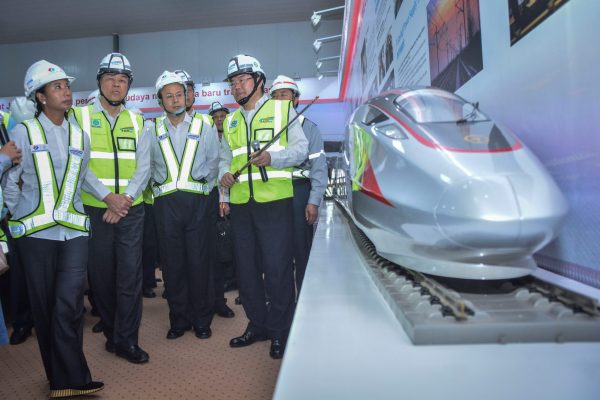The longstanding push for SOE reform gained traction with a communique released in October 2018 by Business 20 (B20), the G20’s informal business interest group. It advocated for the ‘significant limitation and/or elimination of policies that accord preferential treatment to SOEs’. To level the SOE–private enterprise playing field, the B20 recommends that a tweaked multilateral trading regime proscribe actions ranging from cheap financing to debt relief and other forms of market-distorting non-commercial assistance.
World Trade Organization (WTO) rules related to SOEs already proscribe non-commercial assistance. They also mandate notifications on what SOEs exist domestically and how they are treated, including on non-commercial assistance received. But compliance with these rules is lagging.
The B20’s clarion call for stricter SOE rules amplifies the demands of certain countries trying to bridge these regulatory gaps. India supports any potential Japanese-led bid for stricter SOE rules in the proposed Regional Comprehensive Economic Partnership. And in September 2018 the Trilateral Meeting of the Trade Ministers of the United States, Japan and European Union proposed more transparent reporting on SOEs and reductions in market-distorting SOE benefits.
The Comprehensive and Progressive Agreement for Trans-Pacific Partnership (CPTPP) likewise aims for higher standards in disciplining SOEs. Compared to the WTO, the CPTPP defines SOEs through narrower criteria, such as more than 50 per cent government ownership/control of shares. CPTPP rules apply only to SOEs earning more than 200 million special drawing rights (roughly US$276 million), and cover trade in goods and services. While the CPTPP circumscribes non-commercial assistance for international SOE operations and production of goods, it grants exemptions for economic emergencies and public goods provision.
Broadly stringent rules on SOEs could dampen development in many Asia Pacific economies, where SOEs have played defining roles in the region’s growth. The East Asian growth story would have looked very different had non-commercial assistance been barred. SOEs exist almost everywhere, from Malaysian palm oil to South Korean steel.
Deeper and broader disciplining of SOEs may also affect international development partnerships, depending on how non-commercial assistance is circumscribed and exemptions for SOE activity abroad are made. According to the American Enterprise Institute, SOEs carry out nearly 70 per cent of investment and 95 per cent of construction in the smorgasbord of infrastructure projects under China’s Belt and Road Initiative (BRI). Considering that several participating SOEs would be inoperable without non-commercial assistance, eliminating such assistance could leave a question mark hanging over the fate of some BRI development projects.
Ultimately, updating the multilateral rulebook must find a balance between meeting development needs and reducing market impediments, whether from state or private enterprises. Otherwise, attempts to strengthen the multilateral trading system (from the B20 or elsewhere) will only erode it instead.
Several challenges dim the prospects of striking such a balance.
First, it is difficult to build consensus among the diverse membership and interests represented in the WTO. China, for instance, maintains that it has already established competitive neutrality (a level playing field between private and state enterprises).
Some developing countries have signed on to SOE reform rules, such as CPTPP members Vietnam, Malaysia, Brunei and Singapore. But significant carve-outs in such agreements and absent SOE clauses in many other free trade agreements indicate that developing countries are generally not on board with stricter SOE rules, even if opposition is not vocal. Meanwhile, the United States has broadly complained about development-based exemptions to WTO rules and their abuse.
Second, trade tensions, including the SOE debate, fall under the larger banner of US–China geopolitical rivalry. There is longstanding disagreement over which economic model — state or liberal capitalism — should constitute the foundations of the rules-based trading order. Any consequences of stricter SOE rules for the BRI and the race for infrastructure-based geostrategic influence will be side-effects of this ageless clash of capitalisms as well as China’s delay in meeting its accession terms satisfactorily, including in SOE notifications and transitioning to a market economy.
Yet while multilateral progress may stall, SOE rules in plurilateral and regional trade agreements can still be tightened. Ensuing effects on China may then be indirect. The use of ‘poison-pill clauses’ in the United States–Mexico–Canada Agreement and future US trade agreements, which discourage participating countries from entering into trade agreements with non-market economies like China, could put pressure on Beijing to further reform lest it be isolated from trading partners.
Finally, Trump’s abhorrence for actual or perceived losing could make compromise tough, while unrelenting external pressure could make hardliners in China more resistant to valid reform attempts. Balanced SOE rules could bring benefits vis-a-vis development and improved markets. But changing trade rules without addressing underlying geopolitical tensions will not lay the foundations for an inclusive, sustainable global trading regime or make them less vulnerable to power politics.
Greater dialogue between some of the multilateral trading system’s largest economies is important for all stakeholders. Reaching a new trade consensus is even more so.
Amalina Anuar is a Research Analyst with the Centre for Multilateralism Studies at the S Rajaratnam School of International Studies (RSIS), Nanyang Technological University, Singapore.
A version of this article originally appeared here on RSIS.

